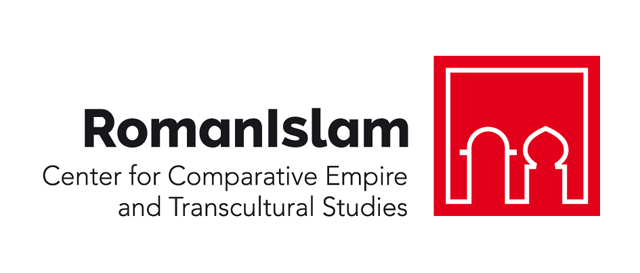Religious Power and Religious Opposition
"Constantine as 'Bishop of those outside'" by Mark Edwards
This paper will suggest that we take Constantine’s designation of himself as “episkopos of those outside” to be a play on the dual meaning of episkoposin the Bible as “bishop” and “overseer/ruler”. It explains his retention of the title Pontifex Maximus, in acknowledgement of his duty to the pagan majority among his subjects. The paperwill consider: (a) the evidence for Constantine’s toleration opagan worship, and accommodation to pagan sentiment; (b) analogies between Constantine’s selectivesupport or suppression of pagan cults and the policy of his pagan predecessors; (c) Constantine’s ambivalent relation to Apollo; (d) hisadaptation of the narrativeof his conversionto different times and audiences.
 Prof. Mark Edwards is Tutor in Theology at Christ Church, Oxford and Titular Professor of Early Christian Studies in the Faculty of Theology and Religion at the University of Oxford. His books include: Neoplatonic Saints (2000), Origen against Plato (2002), Constantine and Christendom (2004), Culture and Philosophy in the Age of Plotinus (2006), Catholicity and Heresy in the Early Church (2009), Image, Word and God in the Early Christian Centuries (2012), Religions of the Constantinian Empire (2015), Aristotle and Early Christian Thought (2019).
Prof. Mark Edwards is Tutor in Theology at Christ Church, Oxford and Titular Professor of Early Christian Studies in the Faculty of Theology and Religion at the University of Oxford. His books include: Neoplatonic Saints (2000), Origen against Plato (2002), Constantine and Christendom (2004), Culture and Philosophy in the Age of Plotinus (2006), Catholicity and Heresy in the Early Church (2009), Image, Word and God in the Early Christian Centuries (2012), Religions of the Constantinian Empire (2015), Aristotle and Early Christian Thought (2019).
"The Ibāḍīs in North Africa (8th-10th century): an anti-Imperial movement?" by Cyrille Aillet
The Ibāḍī stream was born in Baṣra and soon claimed its difference with the “Khārijite” movement, who had so far embodied the opposition to the Umayyads. The Ibāḍīs did not consider rebellion as an absolute duty nor considered the other Muslims as “polytheists”. Nonetheless, they were sharing with their predecessors a vision of government that deeply contrasted with the Caliphate. Thanks to the “knowledge bearers” who reportedly rooted the doctrine among the Berbers, they played a key role in the secession of central Maghreb and finally founded a flourishing state in Tāhart (160-296 H/777-909CE). Under the rule of the Rustamids the primitive ideal was gradually influenced by mainstream culture, but nevertheless survived until the 10th century. My lecture focuses on this local model and its relations with the Empire.
 Prof. Cyrille Aillet is Full Professor of Islamic medieval history at the University of Lumière Lyon 2 (France) and a specialist of the Muslim West. He mostly deals with political culture, the building of ethnical and religious boundaries, the process of islamication and arabization among local communities. His studies first focused on the Mozarabs, but since 2010 he mostly deals with Ibāḍism in North Africa.
Prof. Cyrille Aillet is Full Professor of Islamic medieval history at the University of Lumière Lyon 2 (France) and a specialist of the Muslim West. He mostly deals with political culture, the building of ethnical and religious boundaries, the process of islamication and arabization among local communities. His studies first focused on the Mozarabs, but since 2010 he mostly deals with Ibāḍism in North Africa.


